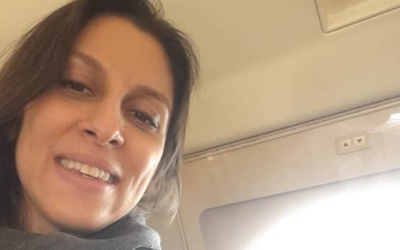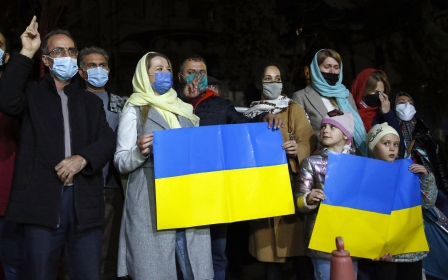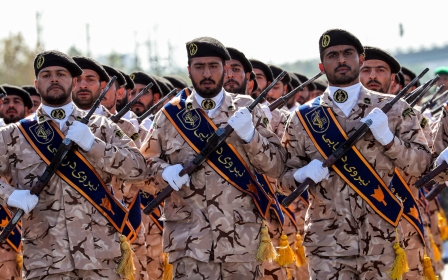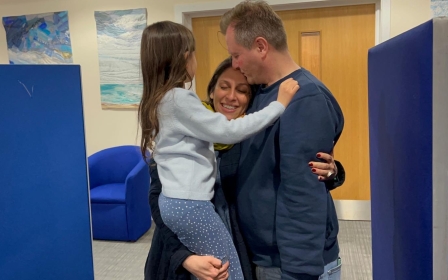Iran: Fate of other detained British citizens still up in the air
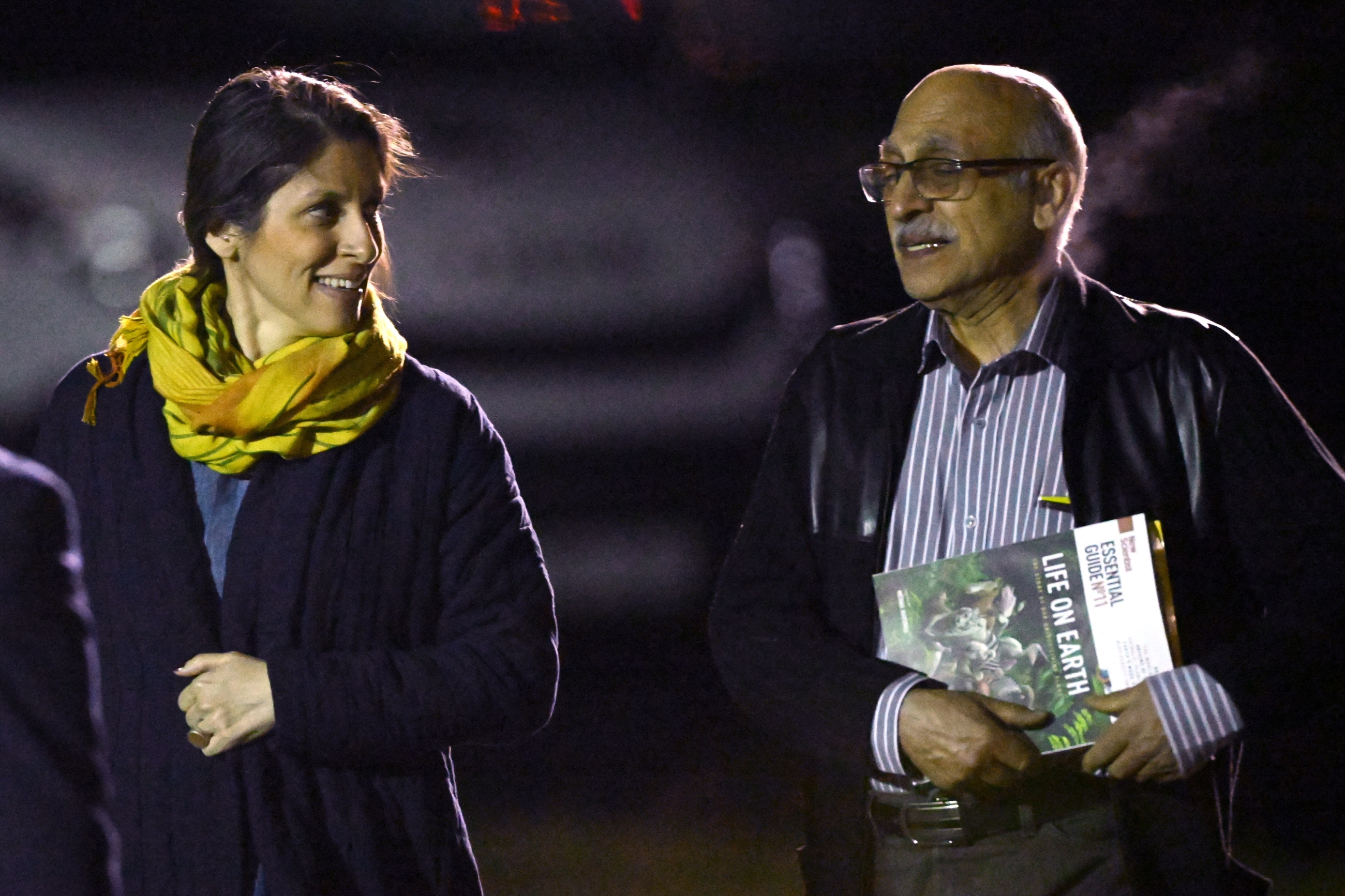
Two British citizens held arbitrarily in Iran have returned to the UK this week after lengthy imprisonment - but the fate of others is still up in the air.
Nazanin Zaghari-Ratcliffe and Anoosheh Ashoori were reunited with their families on Thursday morning, following years of public campaigning and bilateral negotiations.
Zaghari-Ratcliffe, who worked for the philanthropic arm of the Thomson Reuters news and data agency, was arrested in Tehran on a family visit in 2016, after being accused of plotting to overthrow the regime.
Ashoori, a retired engineer from southeast London, was arrested in 2017 and jailed for 10 years on charges of spying for Israel.
Both families believe they were being held as political prisoners until a £400m historic debt owed by Britain to Iran - for the non-delivery of Chieftain tanks to Tehran, cancelled after the 1979 Islamic revolution - was repaid. UK Foreign Secretary Liz Truss announced on Wednesday that the debt had now been settled.
But amid the heartwarming scenes of reunited families, other British citizens held arbitrarily in Iran are yet to return home.
Morad Tahbaz
Two more British citizens are publicly known to be held in Iran: Morad Tahbaz and Mehran Raoof.
Tahbaz, an Iranian-American who holds British citizenship, was released on furlough on Tuesday, Truss confirmed. She said this was “far from sufficient” and the UK government would “continue to work intensively to secure his departure from Iran”.
Tahbaz was detained by Iran in 2018 alongside several other wildlife conservationists accused of spying.
“He’s not free and this is not open furlough. He’s in a high-security situation with armed guards nearby. His family feel extremely let down,” Jo Atkins-Potts, Amnesty International UK’s urgent actions campaigner, told Middle East Eye.
“His current house arrest is being renewed by the hour and he’s at risk of being returned to prison custody at any moment. His children have not been able to speak to him either.”
'The government is seemingly avoiding mentioning Mehran, or even naming him'
- Jo Atkins-Potts, Amnesty International
Atkins-Potts explained that the foreign secretary had cited Tahbaz's “tri-nationality” as a barrier to his release - but his family believe he should be treated as a UK citizen, due to his British passport and British birth certificate.
Earlier this week, a member of Tahbaz’s family told The Guardian: “We have been let down and betrayed by the British government. He was the only one of the three with a British birth certificate, and he has been left behind. We were not told about this arrangement except in a short phone call with the foreign secretary, when it was too late to do anything about it. The British now just say he is an American problem.”
Mehran Raoof
Raoof, a British-Iranian labour rights activist, was arrested in October 2020 and handed a 10-year sentence in August last year on national security charges.
His name was not mentioned at all by the UK government in relation to this week’s developments.
When asked by MEE about Raoof, the UK Foreign, Commonwealth & Development Office (FCDO) referred back to Truss’s statement on Wednesday - which does not mention his case.
“The government is seemingly avoiding mentioning Mehran, or even naming him,” said Atkins-Potts. “We’re urging the government to acknowledge Mehran Raoof, raise his case with the Iranian authorities and call for his unconditional release.”
Number of UK detainees unknown
It is not public knowledge exactly how many other Britons are being detained arbitrarily by Iranian authorities. Pressed on this issue previously by MEE, the FCDO said: “We do not provide information about numbers of British nationals detained in a country when the low numbers involved may lead to individuals being identifiable."
The statement suggests that there may be several other UK citizens detained who have decided not to go public with their cases. The families of Zaghari-Ratcliffe, Tahbaz and Ashoori have all revealed that the FCDO urged them not to go to the media with their cases.
Labour MP Tulip Siddiq said on Thursday that the government had urged campaigners not to make a “song and dance” about Zaghari-Ratcliffe’s plight.
“The Foreign Office told us many times: ‘We could have got Nazanin out earlier if you didn’t make such a song and dance about this,’ but [her husband] Richard disagreed with that,” Siddiq said.
The Ashoori family told MEE that they were initially advised by the FCDO not to publicise their case, in order to give behind-the-scenes diplomacy a chance. They later went public after the Iranian judiciary accused Ashoori of being a spy on national television.
'The Foreign Office… actively advise many families to stay quiet, saying that engaging in public campaigning will negatively impact their cases'
- Jo Atkins-Potts
“Some families of prisoners fear that going public with their cases will have negative repercussions; however, some choose to go public to raise awareness and try to keep public attention on their loved ones,” Atkins-Potts said.
“We know the Foreign Office… actively advise many families to stay quiet, saying that engaging in public campaigning will negatively impact their cases.” She added that this was the advice given to Tahbaz’s family, who feel “extremely let down” by the FCDO after heeding it.
‘British negotiating position weak’
Kylie Moore-Gilbert, a British-Australian academic who was detained by Iran for over two years on charges of espionage, questioned the UK government for not securing the release of all four known detainees.
“Was £400 million not enough to secure the release of all 4 British citizens? That's £100 mil per person. The British negotiating position must have been weak indeed if they saw fit to leave half the hostages behind,” she tweeted.
Moore-Gilbert suggested that the level of publicity may have played a role in determining which British citizens were released.
“Perhaps not coincidentally, the two who were left behind [Tahbaz and Raoof] were the two who did not have high profiles or enjoy public campaigns for their release. Both have families in Iran for whom such campaigns could have been dangerous,” she said.
She said that Tahbaz’s family did not launch a public campaign as it “would have gone against the wishes of the 7 other Iranian citizens in this case.
“I have no doubt that public pressure would have led to his being on that plane alongside dear Nazanin and Anoosheh.”
Middle East Eye propose une couverture et une analyse indépendantes et incomparables du Moyen-Orient, de l’Afrique du Nord et d’autres régions du monde. Pour en savoir plus sur la reprise de ce contenu et les frais qui s’appliquent, veuillez remplir ce formulaire [en anglais]. Pour en savoir plus sur MEE, cliquez ici [en anglais].


